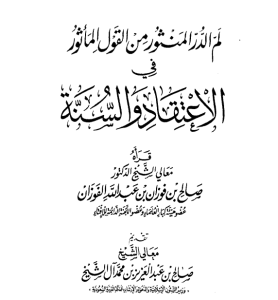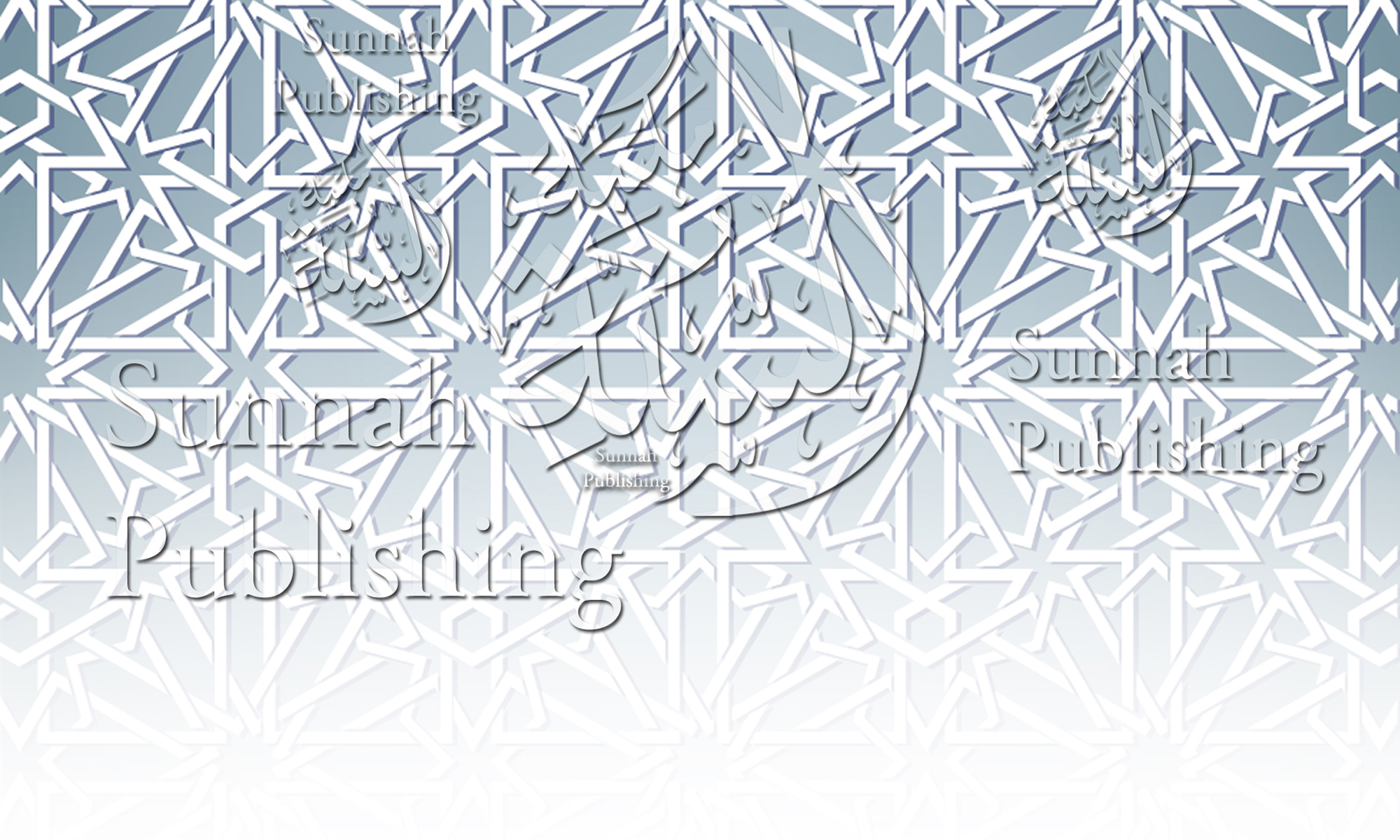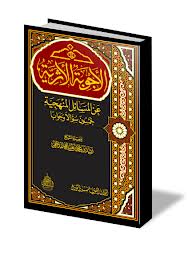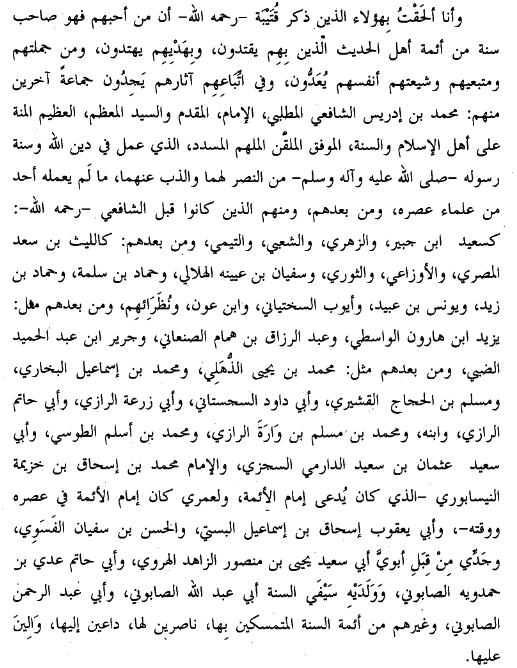Benefit: How People are Known:
Shaykhul-Islaam Ibn Taymiyyah (d.728H) – rahimahullaah – said in Majmoo’ul-Fataawaa (15/330),

“And knowledge about the conditions of the people comes through the testimonies of people at times and through al-Jarh wat-Ta’deel at times and through testing and trial at times.”
Important Note:
 Before moving into the rest of the article, we recommend that the reader peruse, “Testing Individuals by their Love or Hatred of Ahlus-Sunnah,” since it contains several examples of the Salaf speaking about testing people with love for the Scholars of Ahlus-Sunnah and hatred for the heads of innovation. The series of statements from the Salaf was derived mainly from Jamaal Ibn Furayhaan al-Haarithee’s collection, Lammud-Durril-Manthoor, which has received critical acclaim from Scholars such as Imaam Muhammad Ibn Saalih al-’Uthaymeen (d.1421H), Saalih Ibn Fawzaan al-Fawzaan and Saalih Ibn ’Abdul-’Azeez aalush-Shaykh, along with supplementary material from other works. However, this series will deal specifically with applying this principle of Ahlus-Sunnah in our times.
Before moving into the rest of the article, we recommend that the reader peruse, “Testing Individuals by their Love or Hatred of Ahlus-Sunnah,” since it contains several examples of the Salaf speaking about testing people with love for the Scholars of Ahlus-Sunnah and hatred for the heads of innovation. The series of statements from the Salaf was derived mainly from Jamaal Ibn Furayhaan al-Haarithee’s collection, Lammud-Durril-Manthoor, which has received critical acclaim from Scholars such as Imaam Muhammad Ibn Saalih al-’Uthaymeen (d.1421H), Saalih Ibn Fawzaan al-Fawzaan and Saalih Ibn ’Abdul-’Azeez aalush-Shaykh, along with supplementary material from other works. However, this series will deal specifically with applying this principle of Ahlus-Sunnah in our times.
In the third and final part of this series, we present the essay of the noble Scholar, the Imaam of al-Jarh wat-Ta’deel in our times, al-’Allaamah Rabee’ Ibn Haadee al-Madkhalee – hafidhahullaah. So let us move on, in haste, to the words of the Shaykh…
What is the Ruling in Islaam Concerning Testing the People of Desires and Other Than Them?
The Imaam, the Mujaahid, Shaykh Rabee’ Ibn Haadee al-Madkhalee – hafidhahullaahu ta’aalaa said,
الحمد لله، والصَّلاة والسَّلام على رسُول الله، وعلى آله وصحبه، ومن اتَّبع هداه
So there is an abundance of speech surrounding the issue of testing the individuals from the people of desires and other than them. So I saw that it was obligatory to clarify the ruling of Islaam concerning it, relying upon the Qur‘aan and the Sunnah and the positions and statements of the Imaams of Islaam and the Sunnah concerning this affair, so that the Muslim could be upon clear insight and proof about the affair.
As for the Qur‘aan, then Allaah the Exalted said,
“O you who have believed, when the believing women come to you as emigrants, examine them. Allaah is most knowing as to their faith. And if you know them to be believers, then do not return them to the disbelievers; they are not lawful (wives) for them, nor are they lawful (husbands) for them.” [Sooratul-Mumtahinah 60:10]
As for the Sunnah, then the Messenger of Allaah (sallallaahu ’alayhi wa sallam) tested the slave girl. He said to her, “Where is Allaah?” She replied, “Above the heavens.” He said, “Who am I?” She replied, “You are the Messenger of Allaah.” So he said to her master, Mu’aawiyah Ibnul-Hakam as-Sulamee, “Free her, since she is a Believer.” [1]
Shaykhul-Islaam Ibn Taymiyyah (d.728H) – rahimahullaah – said,
“So when a person wants to accompany a Believer, or a Believer wants to accompany someone, but immorality has been mentioned about him and it is said that he has repented from it, regardless of whether what said was true or false, then he must test the person with that which will make his immorality or righteousness apparent. Likewise, when he wants to grant someone leadership, he must test him, as ’Umar Ibn ’Abdul-’Azeez commanded his servant to test Ibn Abee Moosaa. So the servant said to him, “Indeed, you know my status with the Leader of the Believers. So how much will you give me if I were to suggest you as a leader to him?” So he gathered a large amount of wealth for him. So ’Umar knew that he was not fit for leadership. Likewise is the case with social dealings. And likewise is the case with servant boys and owners about whom it is known or about whom it has been said that they indulge in immorality. So when a man wants to buy him, he must test him, since the effeminate male is like the prostitute and his tawbah (repentance) is like her tawbah. And knowledge about the conditions of the people comes through the testimonies of people at times and through al-Jarh wat-Ta’deel at times and through testing and trial at times.” [2]
So these tests are warranted for the one who does not dispute with the people of truth and he does not ally himself with the people of falsehood. So what about the people of falsehood themselves and the one who does dispute with the people of truth and he allies himself with the people of falsehood?
And as for the Salafus-Saalih who acted upon the Book and the Sunnah, then they made the test (imtihaan) the gauge by which they distinguished between Ahlus-Sunnah and the people of innovation and desires and between the trustworthy individuals from the narrators of hadeeth and the liars, the heedless and the weak ones. So from the Imaams from whom the imtihaan has been quoted are:
Imaam Muhammad Ibn Seereen (d.110H) – rahimahullaah,
“Indeed, this knowledge is Religion. So look from whom you take your Religion.” [3]
And he – rahimahullaah – also said,
“They did not used to ask about the isnaad (chain of narration). So when the fitnah (trial, tribulation) occurred, they said, ‘Name to us your men.’ So look to Ahlus-Sunnah and take their hadeeth. And look to the people of innovation and do not take their hadeeth.” [4]
So even though Ahlul-Hadeeth narrated from the people of innovation with conditions, from them was truthfulness, proficient memorization and trustworthiness, but the affair of al-imtihaan did not cease to be utilized by them. And they did not distinguish between Ahlus-Sunnah and the people of innovation, except by studying the conditions of the men and testing them through the methods that are well known to the people of knowledge.
And al-’Allaamah ’Abdur-Rahmaan Ibn Yahyaa al-Mu’allimee (d.1386H) – rahimahullaah – said in his book, ’Ilmur-Rijaal wa Ahammiyyatuhu, whilst he was speaking about al-Jarh wat-Ta’deel,
“Then came the time of the atbaa’ut-taabi’een (i.e. the third righteous generation of Muslims). So the weak narrators, the heedless ones, the liars and the heretics became abundant. So the Imaams embarked upon clarifying the conditions of the narrators and declaring the falsity of that which was not confirmed. So no land remained from the lands of the Muslims, except that there was a group of Imaams therein testing the narrators and trialing their conditions and the conditions of their narrations and following up their movements and their moments of inactivity and openly proclaiming to the people the ruling upon them.” [5]
And he – rahimahullaah – said,
“Ways to test the narrators:
And the Imaams had ways to test the narrators. From them was looking into the condition of the narrator (raawee) with regards to his safeguarding the acts the obedience and remaining away from disobedience and asking the people who knew him.
Al-Hasan Ibn Saalih Ibn Hayy said, ‘When we wanted to write from a man, we would ask about him up until it would we said, ‘Do you want to marry him off?” [6]
And from the ways of testing is that when he narrates ahaadeeth from a Shaykh who is living, to ask that Shaykh about these ahaadeeth.
And an example of this is the statement of Shu’bah (d.160H) who said, “Al-Hasan Ibn ’Amaarah said: al-Hakam informed me from Yahyaa Ibnul-Jazaar of seven ahaadeeth from ’Alee. So I asked al-Hakam about those. So he replied, “I have not heard anything from them.” [7]
And from the ways of testing is when he narrates from a Shaykh who has already died. So it must be said to the narrator: When were you born? And when did you meet this Shaykh? And where did you meet him? Then compare between his answers and what has been documented about the death of the Shaykh from whom he claims to be narrating and the place of his residence and the histories of his travels.
An example of this is what has come from ’Afeer Ibn Ma’daan that ’Umar Ibn Moosaa Ibn Wujayh narrated from Khaalid Ibn Ma’daan. ’Afeer said, ‘So I said to him, “In which year did you meet him?” He replied, “In the year 158H, during the military expeditions to Armenia.” I said, “Fear Allaah O Shaykh! Do not lie. Khaalid died in the year 154H. [8] I say to you additionally that he did not travel in a military expedition to Armenia.” [9]
And from the ways is to listen to the narrator of ahaadeeth from mashaayikh who have died. And then present these ahaadeeth to the trustworthy narrators who narrate from these mashaayikh. Then look to see if this narrator differs individually with something from their narrations, or opposes them, or adds onto them or omits something from them. So you will find them saying in the books of al-Jarh (disparagement, criticism), “He differed individually from the trustworthy narrators.” And, “There are manaakeer (rejected narrations) in his hadeeth.” And, “He errs and mixes up narrations,” and the likes of that. [10]
Imaam Ahmad Ibn ’Abdullaah Ibn Yoonus (d.227H) – rahimahullaah – said,
“Test the people of al-Mawsil with Mu’aafaa Ibn ’Imraan. So if they love him, then they are Ahlus-Sunnah and if they hate him, then they are people of innovation. Likewise, test the people of al-Koofah with Yahyaa.” [11]
Imaam Nu’aym Ibn Hammaad (d.228H) – rahimahullaah – said,
“When you see a person from al-’Iraaq speaking about Ahmad, then doubt his Religion. And if you see a person from al-Khurasaan speaking about Ishaaq Ibn Raahawayh (d.238H), then doubt his Religion. And if you see a person from al-Basrah speaking about Wahb Ibn Jareer, then doubt his Religion.” [12]
And Ja’far Ibn Abee ’Uthmaan at-Tiyaalisee said: I heard Yahyaa Ibn Ma’een (d.233H) – rahimahullaah – saying,
“When you see a man speaking about Hammaad Ibn Salamah (d.167H) and ’Ikrimah (d.13H) the freed slave of Ibn ’Abbaas (radiyallaahu ’anhumaa), then doubt his Islaam.” [13]
And Imaam ’Alee Ibnul-Madeenee (d.234H) – rahimahullaah – said in his ’aqeedah,
“And if you see a man loving Aboo Hurayrah (radiyallaahu ’anhu) and supplicating for him and asking Allaah to have mercy upon him, then have hope for him to attain goodness and know that he is absolved from innovations. And if you see a man loving ’Umar Ibn ’Abdul-’Azeez (d.101H) and mentioning his good qualities and spreading them, then know that this will lead to goodness if Allaah so wills. And when you see a man from the people of al-Basrah relying upon Ayyoob as-Sakhtiyaanee (d.131H) and Ibn ’Awn (d.151H) and Yoonus and at-Taymee and loving them and mentioning their good qualities often and taking them as examples, then have hope that he will attain goodness. Then after those ones came Hammaad Ibn Salamah and Mu’aadh Ibn Mu’aadh and Wahb Ibn Jareer. So these ones are a trial for the people of innovation. And when you see a man from the people of al-Koofah relying upon Talhah Ibn Musrif and Ibn Abjar and Ibn Hayyaan at-Taymee and Maalik Ibn Maghool and Sufyaan Ibn Sa’eed ath-Thawree (d.167H) and Zaa‘idah, then have hope for him. And after them came ’Abdullaah Ibn Idrees and Muhammad Ibn ’Ubayd and Ibn Abee ’Utbah and al-Muhaaribee, so have hope for the one who praises them.” [14]
And Imaam Ahmad Ibn Hanbal (d.241H) – rahimahullaah – said,
“When you see a man defaming Hammaad Ibn Salamah, then doubt his Islaam.” [15]
And Imaam al-Bukhaaree (d.256H) – rahimahullaah – said,
“’Ubaydullaah Ibn Sa’eed said: I heard ’Abdur-Rahmaan Ibn Mahdee (d.198H) saying after mentioning a hadeeth, “And when you see a man from al-Koofah mentioning Maalik Ibn Maghool, then trust him.” [16]
And Imaam Aboo Haatim ar-Raazee (d.277H) – rahimahullaah – said,
“When you see a Raazee and other than him hating Abaa Zur’ah (d.264H), then know that he is an innovator.” [17]
And Imaam Ahmad Ibn Asram Ibn Khuzaymah al-Maghfalee (d.285H) – rahimahullaah – said,
“When you see a man from al-Anbaar loving Abaa Ja’far al-Hidhaa‘ and Muthannaa Ibn Jaami’ al-Anbaaree, then know that he is a person of Sunnah.” [18]
And Imaam ’Abdur-Rahmaan Ibn Mahdee (d.198H) – rahimahullaah – said,
“When you see a man from the Hijaaz, loving Maalik Ibn Anas (d.179H), then he is a person of Sunnah,” and he said in the narration of Muhammad Ibn Muslim, “When you see a man from al-Madeenah loving Maalik…” [19]
And Aswad Ibn Saalim – rahimahullaah – said,
“Ibnul-Mubaarak was an Imaam to be followed. He was from the most steadfast of the people upon the Sunnah. When you see a man slandering Ibnul-Mubaarak (d.181H) with something, then doubt his Islaam.” [20]
And Aboo Muhammad Ibn Abee Haatim ar-Raazee (d.327H) – rahimahullaah – said,
“Chapter: The one who loves Hammaad Ibn Zayd (d.179H) is worthy of the Sunnah. Ubayy and Muhammad Ibn Muslim Ibn Muslim narrated to us saying: We heard Hammaad Ibn Zaadaan saying: I heard ’Abdur-Rahmaan Ibn Mahdee saying: When you see a man from al-Basrah loving Hammaad Ibn Zayd, then he is a person of Sunnah.” [21]
And he – rahimahullaah – also said,
“Chapter: A person who passes the trial of Ahmad Ibn Hanbal is worthy of the Sunnah. Ahmad Ibn Qaasim Ibn ’Atiyyah related to us saying: I heard ’Abdullaah Ibn Ahmad Ibn Shabawayh al-Marwazee saying: I heard Abaa Rajaa‘ – meaning Qutaybah Ibn Sa’eed (d.240H) – saying: When you see a man loving Ahmad Ibn Hanbal, then know that he is a person of Sunnah and Jamaa’ah…”
And he said: I heard Abaa Ja’far Muhammad Ibn Haaroon al-Makhramee, commonly known as al-Falaas, saying,
“When you see a man finding fault with Ahmad Ibn Hanbal (d.241H), then know that he is a misguided innovator.” [22]
And he – rahimahullaah – also said,
“Chapter what is hoped from goodness for the one who loves al-Awzaa’ee (d.157H). Saalih Ibn Ahmad Ibn Hanbal (d.266H) related to us: Ibnul-Madeenee related to us saying: I heard ’Abdur-Rahmaan – meaning Ibn Mahdee – saying: When you see a man from ash-Shaam loving al-Awzaa’ee and Abaa Ishaaq al-Fazaaree, then have hope that he will attain goodness.”
And he said,
“My father related to us: Aboo Ziyaad Hammaad Ibn Zaadaan related to us saying: I heard ’Abdur-Rahmaan Ibn Mahdee saying: When you see a man from ash-Shaam loving al-Awzaa’ee and Abaa Ishaaq al-Fazaaree, then he is a person of Sunnah.” [23]
And he – rahimahullaah – also said,
“Chapter: The one who loves Abee Ishaaq al-Fazaaree is worthy of the Sunnah. My father related to me saying: I heard Hammaad Ibn Zaadaan saying: I heard ’Abdur-Rahmaan Ibn Mahdee saying: When you see a man from ash-Shaam loving al-Awzaa’ee and Abaa Ishaaq al-Fazaaree, then he is a person of Sunnah.”
Ahmad Ibn Salamah an-Naysaabooree related to us: Aboo Qudaamah ’Ubaydullaah Ibn Sa’eed related to us saying: I heard ’Abdur-Rahmaan Ibn Mahdee saying: When you see a man from ash-Shaam mentioning al-Awzaa’ee and al-Fazaaree – meaning, with goodness – then trust him.” [24]
And Aboo Ahmad al-Haakim (d.378H) – rahimahullaah – said,
“And when you see a man loving Sufyaan ath-Thawree and Maalik Ibn Anas and Ayyoob as-Sakhtiyaanee and ’Abdullaah Ibn ’Awn and Yoonus Ibn ’Ubayd (d.139H) and Sulaymaan at-Taymee and Shareek (d.177H) and Abul-Ahwas and al-Fudayl Ibn ’Iyaad (d.187H) and Sufyaan Ibn ’Uyaynah (d.197H) and al-Layth Ibn Sa’d (d.175H) and Ibnul-Mubaarak and Wakee’ Ibnul-Jarraah (d.197H) and Yahyaa Ibn Sa’eed (d.198H) and ’Abdur-Rahmaan Ibn Mahdee and Yahyaa Ibn Yahyaa and Ahmad Ibn Hanbal and Ishaaq Ibn Raahawayh, then know that he is upon the path. And when you see a man saying these individuals are doubtful, then be wary of him, since is not upon the path.” [25]
And Aboo ’Abdullaah Ibn Battah (d.387H) – rahimahullaah – said,
“When you see a man from al-’Ukbar loving Abaa Hafs Ibn Rajaa‘, then know that he is a person of Sunnah.” [26]
And he also said,
“When you see a man from al-Baghdaad loving Abul-Hasan Ibn Bashaar and Abaa Muhammad al-Barbahaaree (d.329H), then know that he is a person of Sunnah.” [27]
And Muhammad Ibn ’Abdur-Rahmaan Ibn Mahdee – rahimahullaah – said,
“Al-Awzaa’ee and al-Fazaaree were two Imaams of the Sunnah. When you see a man from ash-Shaam mentioning al-Awzaa’ee and al-Fazaaree, then trust him. They were Imaams of the Sunnah.” [28]
And Abul-Husayn Muhammad Ibn Ibraaheem Ibn Shu’ayb al-Ghaazee at-Tabaree – rahimahullaah – said,
“When you see a Raazee and a Khuraasaanee loving Abaa Haatim and Abaa Zur’ah, then know that he is a person of Sunnah.” [29] [30]
So this is a widely accepted manhaj and a well-known truth. And it is widespread amongst Ahlus-Sunnah and it is an unsheathed sword against the people of innovation. And from the signs of the people of innovation is that they reject it and they find fault with Ahlus-Sunnah and revile them for it. So when you hear a man finding fault with Ahlus-Sunnah, then know that he is from the people of desires and innovation, except if he is ignorant. So in that case, teach him and clarify to him that this imtihaan (test) for the people of desires is an affair that is legislated by the Sharee’ah and it is proven by the Book and the Sunnah and the deeds of the Salaf. No one is troubled by it and condemns it, except the people of innovation, because it disgraces them and it lays bare whatever they conceal from innovations.
وصلَّى اللهُ على نَبيِّنا محمَّدٍ، وعلى آله وصحبه وسلّم
Written by,
Rabee’ Ibn Haadee ’Umayr al-Madkhalee
8/25/1433H
Endnotes:
[1]: Related by Muslim (no. 537) and Ahmad in al-Musnad (5/447).
[2]: Refer to Majmoo’ul-Fataawaa (15/329-330) of Ibn Taymiyyah.
[3]: Refer to Muqaddimah Saheeh Muslim (p. 14).
[4]: Refer to Muqaddimah Saheeh Muslim (p. 15).
[5]: Refer to ’Ilmur-Rijaal wa Ahammiyyatuhu (p. 20) of al-Mu’allimee.
[6]: Refer to al-Kifaayah (p. 155) of al-Khateeb al-Baghdaadee.
[7]: Refer to Taareekh Baghdaad (8/326) of al-Khateeb, with the checking of Dr. Bashaar ’Awaad Ma’roof.
[8]: The correct view is that Khaalid died in the year 104H, as has been related by al-’Uqaylee in ad-Du’afaa‘ (3/191). And refer to al-Meezaan (3/225) of adh-Dhahabee.
[9]: Refer to ad-Du’afaa‘ (3/191) of al-’Uqaylee and al-Meezaan (3/225) of adh-Dhahabee.
[10]: Refer to ’Ilmur-Rijaal wa Ahammiyyatuhu (p. 22-24) of al-Mu’allimee.
[11]: Refer to Sharh Usool I’tiqaad Ahlus-Sunnah (1/74) of al-Laalikaa‘ee.
[12]: Refer to Taareekh Baghdaad (6/348-349) of al-Khateeb and Siyar A’laamun-Nubalaa‘ (11/381) of adh-Dhahabee and Tahdheebut-Tahdheeb (1/191) of Ibn Hajr.
[13]: Refer to Sharh Usool I’tiqaad Ahlus-Sunnah (3/568) of al-Laalikaa‘ee.
[14]: Refer to Sharh Usool I’tiqaad Ahlus-Sunnah (1/191-192) of al-Laalikaa‘ee.
[15]: Refer to Tadhkiratul-Huffaadh (1/203) of adh-Dhahabee.
[16]: Refer to at-Taareekhul-Kabeer (7/314) of al-Bukhaaree.
[17]: Refer to Taareekh Baghdaad (10/329) of al-Khateeb.
[18]: Refer to Taareekh Baghdaad (13/174) of al-Khateeb.
[19]: Refer to al-Jarh wat-Ta’deel (1/25) of Ibn Abee Haatim ar-Raazee.
[20]: Refer to Taareekh Baghdaad (10/168) of al-Khateeb.
[21]: Refer to al-Jarh wat-Ta’deel (1/183) of Ibn Abee Haatim.
[22]: Refer to al-Jarh wat-Ta’deel (1/308-309) of Ibn Abee Haatim.
[23]: Refer to al-Jarh wat-Ta’deel (1/217) of Ibn Abee Haatim.
[24]: Refer to al-Jarh wat-Ta’deel (1/284-285) of Ibn Abee Haatim.
[25]: Refer to Shi’aar Ashaabil-Hadeeth (p. 32-33) of al-Haakim.
[26]: Refer to Taareekh Baghdaad (11/239) of al-Khateeb.
[27]: Refer to Taareekh Baghdaad (12/67) of al-Khateeb.
[28]: Refer to Hilyatul-Awliyaa‘ (8/254) of Aboo Nu’aym al-Asbahaanee.
[29]: Refer to Tahdheebul-Kamaal (24/389) of al-Mizzee.
[30]: Refer to Ta‘ammulaat fee Kitaab Rifqan Ahlas-Sunnah bi Ahlis-Sunnah (p. 109-114) of al-’Awfee.
Translation by Maaz Qureshi


